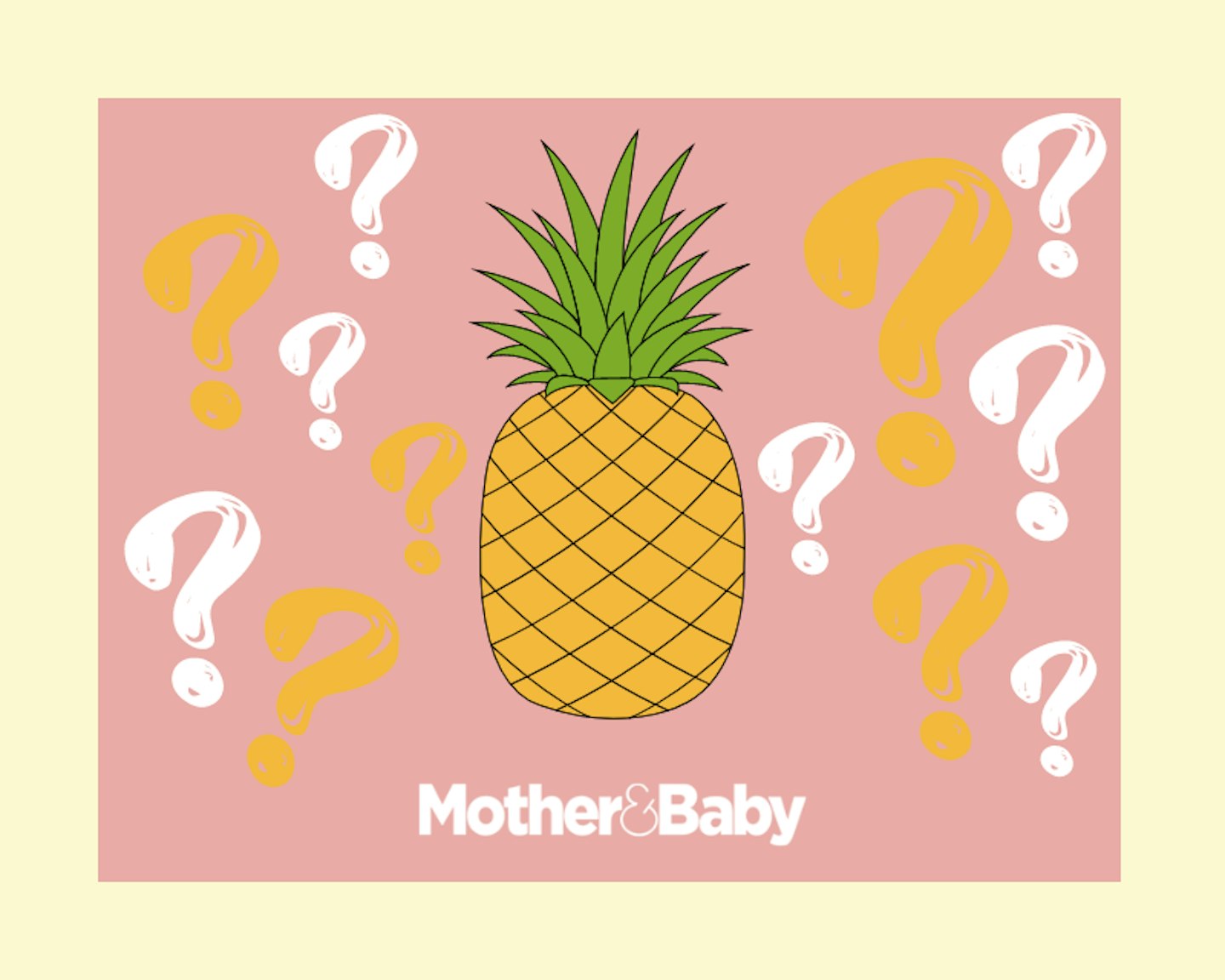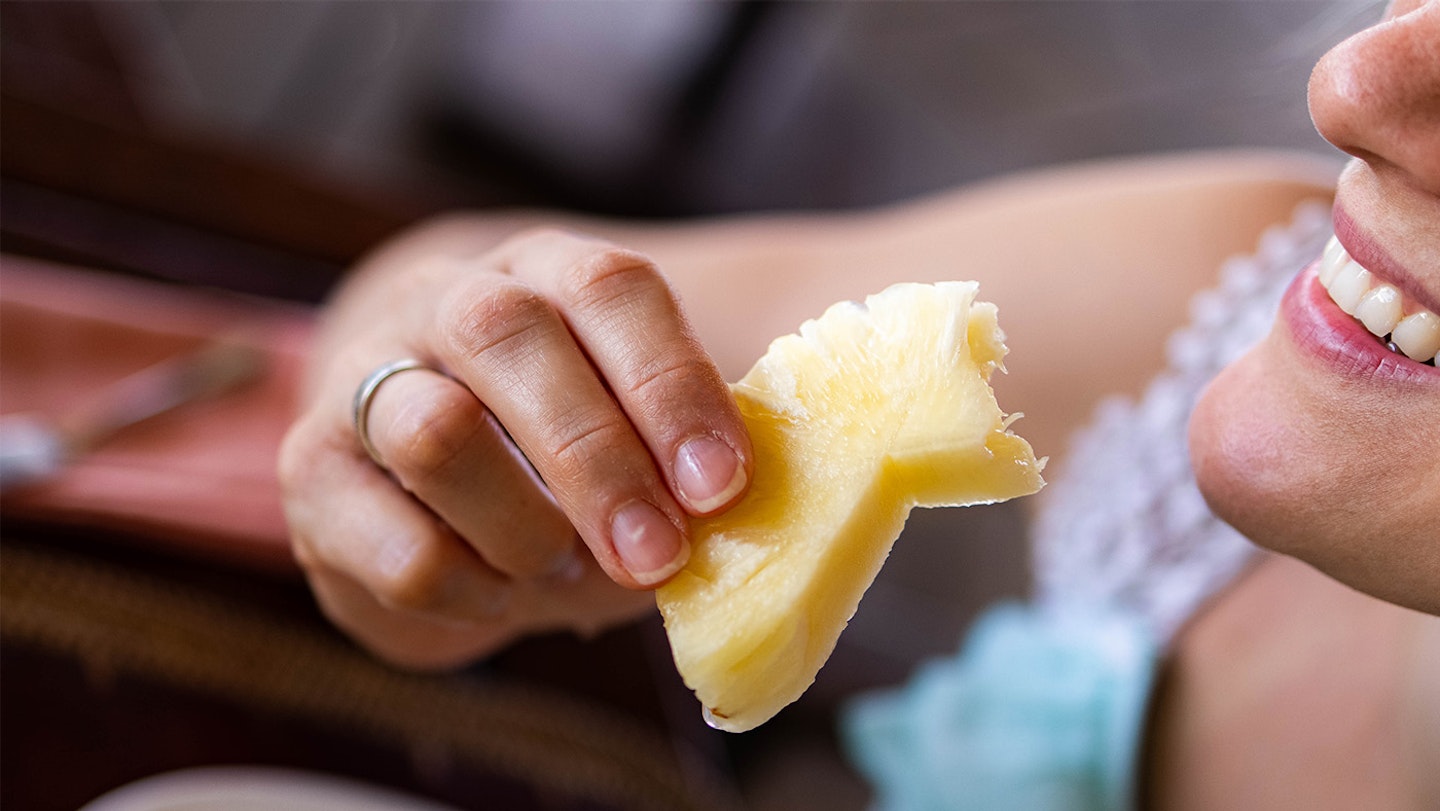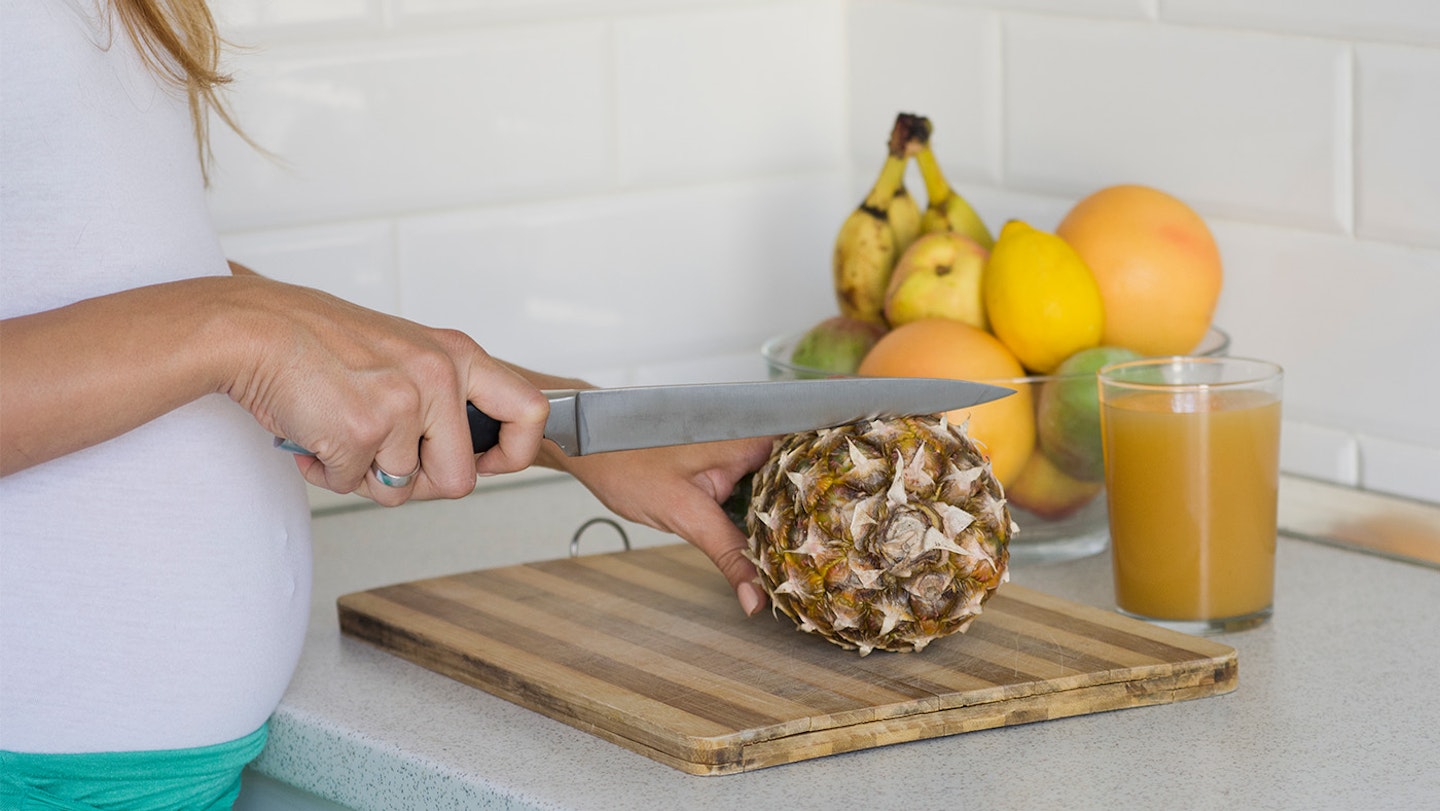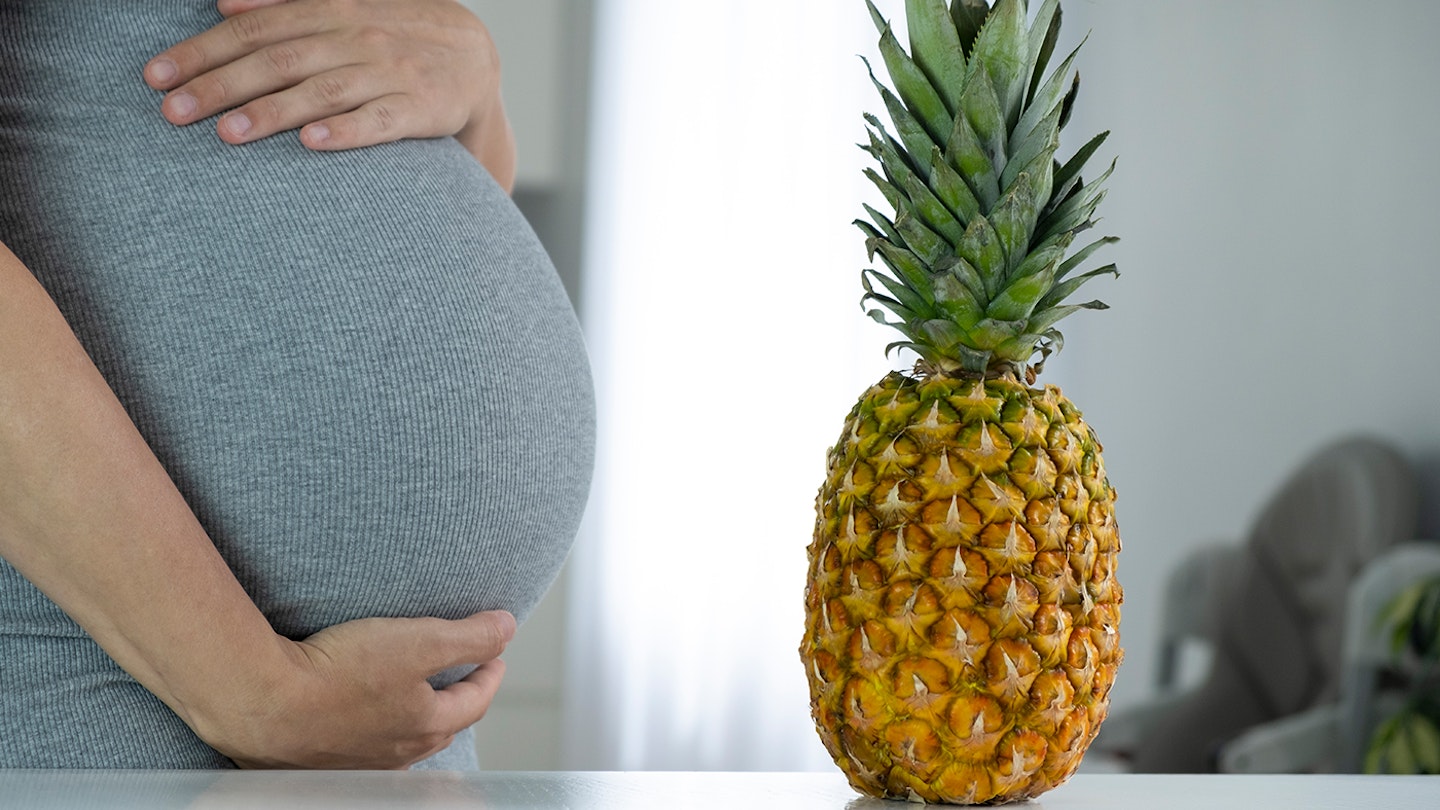Knowing whether or not you can eat pineapple during pregnancy can cause a lot of confusion. After all, certain foods should be avoided during pregnancy, like raw shellfish, while others such as tuna can be safely eaten but in moderation. But what about pineapple?
Pineapple is low in calories but high in minerals and vitamins. It’s particularly high in vitamin C, which supports your immune system to keep you healthy, as well as antioxidants, which can reduce inflammation during pregnancy.
Here we take a look at what the experts say about eating pineapple while pregnant, including whether it’s safe and how much of it you’re actually allowed.
Can I eat pineapple during pregnancy?

Yes, pineapple is perfectly safe and healthy to eat during pregnancy. You may have heard rumours that eating pineapple can cause a miscarriage or bring on early labour, however, these stories are anecdotal as there is no scientific evidence to support this.
Bromelain concerns
Pineapple does contain bromelain — an enzyme found in pineapple juice, which can break down proteins in the body. Pregnant women aren’t recommended to take bromelain tablets, as they can be dangerous and lead to abnormal bleeding.
There’s only a very small amount of bromelain in the flesh of the pineapple, as it’s found in the core. Whereas the bromeliad tablets are a lot stronger. The amount of bromelain found in a serving of pineapple is not likely to affect your pregnancy.
How much pineapple is safe during pregnancy?
Although some women find that having an excessive amount of pineapple can lead to a stomach ache, sickness and diarrhoea, this is the result of getting through a lot of the stuff, so providing you stick to a normal serving of the fruit, you don't need to worry.

Will pineapple help me start labour?
There is very little evidence that pineapple will bring on labour naturally. This rumour likely stems from the old wives' tale that says eating a whole pineapple will help you go into labour. It is the presence of bromelain that is thought to help soften your cervix and cause contractions to help kickstart labour, but this is yet to be proven.
Benefits of pineapple during pregnancy
While it sadly won't help start your labour, there are plenty of benefits of pineapple during pregnancy. Pineapple is:
• is rich in antioxidants such as Vitamin C which has been found to reduce inflammation during pregnancy
• contains iron, magnesium, copper and vitamin B-6 — all of which are important for your overall health and supporting your baby’s development
• is a great source of folate - however, you should still continue to take your 400-microgram folic acid tablet
• is a good source of fibre, meaning it can aid digestion

How can I add pineapple to my diet?
If you’re keen to include more pineapple into your diet during pregnancy, here are some easy ways in which you can do it:
• Add some chunks into some yoghurt
• Blend it into a pregnancy smoothie
• Add chunks to salsa
• Toss some into your stir fry
• Add on top of your pizza
• Grill it for a healthy dessert
